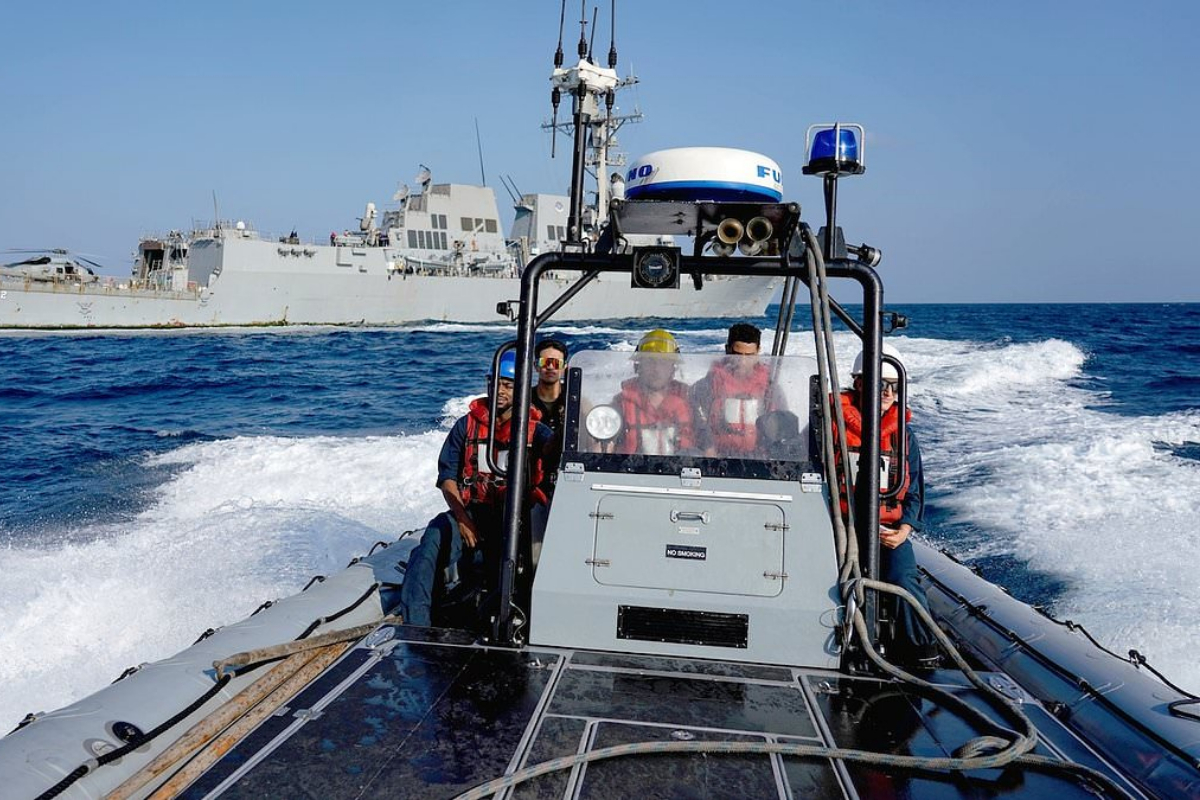- The incident occurred on January 11 when commandos were boarding a ship.
- The US Central Command is currently making efforts to recover the bodies.
- The first Seal was swept into heavy seas.
The US military now states that two Navy SEALs who went missing during an operation to seize Iranian-made weapons, intended for the Houthis in Yemen, are presumed dead.
The incident occurred on January 11 when commandos were boarding a ship off the coast of Somalia. Media reports indicate that one individual was swept away, and the second one jumped in after them, following protocol. US Central Command is currently making efforts to recover the bodies.
“We mourn the loss of our two Naval Special Warfare warriors, and we will forever honor their sacrifice and example,” said the head of Central Command (Centcom), Gen Michael Erik Kurilla.
For 10 days, air and naval units from the US, Japan, and Spain, with the assistance of oceanographers and meteorologists, searched an area of more than 21,000 square miles (54,389 square km) to locate the commandos.
Military officials informed the Associated Press that during the night mission, as the commandos were boarding an unflagged dhow (a traditional sailing ship) where the weapons were discovered, the first Seal was swept into heavy seas. Following the protocol taught during training, the second Seal entered the water to try and save the first.
US Secretary of Defence Lloyd Austin said “Our hearts are with” the families of the “two brave Navy Seals”.
“The entire Department is united in sorrow today. We are grateful to all who worked tirelessly to find and rescue them,” he wrote on Twitter.
United States Central Command:
Last week, Centcom reported the seizure of warheads for Houthi medium-range ballistic missiles, anti-ship cruise missiles, and parts for air defense systems.
Initial analysis by Centcom indicated that these components were for missiles previously used by the Iran-backed Houthis to target vessels in the Red Sea. The supply, sale, and transfer of weapons to the Houthis are considered violations of a 2015 United Nations Security Resolution and international law.
Houthi attacks have targeted dozens of vessels, leading to the rerouting of hundreds of cargo ships and tankers around the southern tip of Africa to avoid the strikes. The Houthis, supporting Hamas, claim to target vessels with connections to Israel in response to the war in Gaza.
However, some attacked ships have no clear connection to Israel. The Houthis have also started attacking ships associated with the US and UK after both countries launched airstrikes against Houthi positions in Yemen in retaliation for the Red Sea attacks.
The group controls the country’s north, capital Sanaa, and the Red Sea coastline. While both the US and the UK assert they are not seeking conflict with the Houthis, they aim to protect the international trade route.
[embedpost slug=”desantis-invited-to-visit-after-territorial-dispute-remarks/”]




















